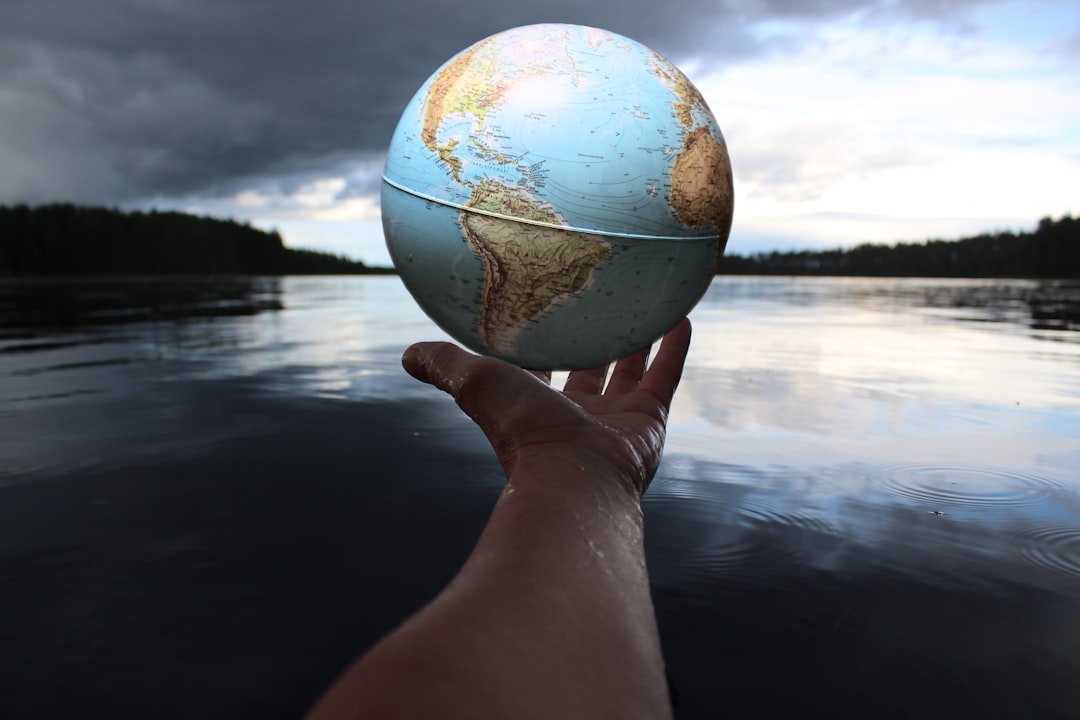The International Relations Defense of Globalization
The great powers have turned against globalization. They are making a mistake.

It would be safe to say that the political sentiment in great power capitals has turned against globalization. This is particularly true in Washington, DC. Earlier this year the New York Times’ Ana Swanson wrote, “Political parties on both the right and left have shifted away from the conventional view that the primary goal of trade policy should be speeding flows of goods and services to lift economic growth. Instead, more politicians have zeroed in on the downsides of past trade deals.” Last month the Washington Post’s David Lynch wrote, “President Biden is making it clear that the United States’ rejection of full-throttle globalization during the Trump administration was no aberration, as he continues a remarkable break with decades of trade policy that spanned both Republican and Democratic administrations.”1
By most metrics the world economy remains highly globalized, but the handwriting appears to be on the wall. The International Monetary Fund is warning about the perils of “geoeconomic fragmentation.” A recent NBER paper noted that the global economy was still pretty open — and yet: “the policy environment and public sentiment towards globalization have fundamentally changed, especially in the largest economies. To the extent that policy and public opinion help shape economic outcomes, there are therefore good reasons to believe that we have entered a new era.”2
It is in this increasingly infertile environment that the Cato Institute has decided to stand apart from the current conventional wisdom inside the Beltway and remind folks about the merits of globalization.
Cato has launched a new project called “Defending Globalization” with the purpose of highlighting the benefits of more trade and exchange across borders. According to the website: “Globalization faces renewed attention—and criticism. Like any market phenomenon, the free movement of people, things, money, and ideas across natural or political borders is imperfect and often disruptive. But it has also produced undeniable benefits—for the United States and the world—that no other system can match.”
Scott Lincicome explains the goals of the project in his introductory essay:
The Cato Institute has launched Defending Globalization, a new project aimed at both correcting the record on globalization—what it is, what it has produced, what its alternatives are, and what people think about it—and offering a strong, proactive case for more global integration in the years ahead. Our case will be based not only on reams of data and scholarly research but also on an understanding of the essential humanity of trade and migration that just so happens to cross political borders.
The hard-working staff here at Spoiler Alerts has contributed to that case with an essay on the international relations benefits of globalization: “The Dangers of Misunderstanding Economic Interdependence.” The key paragraphs:
The new security fears about interdependence meshed nicely with policymakers searching for a post‐neoliberal worldview. This search was rooted in part by an economic conviction that neoliberal economic policies had enriched China and the 1 percent on the backs of America’s working class—a hypothesis that goes beyond the scope of this essay and is addressed by others in this series. It was also rooted by the perception that multiple recent shocks had exposed the folly of excessive interdependence. The coronavirus pandemic seemingly confirmed the risks of relying on other countries for vital supply chains. Russia’s invasion of Ukraine and its weaponization of energy pipelines to Europe have highlighted the risk of weaponized interdependence.
This essay stands athwart this paranoia about malevolent forms of interdependence and yells, “stop!” Economic interdependence is hardly a cure‐all for U.S. national security concerns, but it also is not the acute national security threat that is commonly articulated inside the Beltway. Concerns have been greatly exaggerated, while the geopolitical benefits of interdependence have been underestimated. Even in 2023, China’s interdependence with the Organisation for Economic Co‐operation and Development economies has acted as a constraint on its foreign policy behavior. Indeed, the Biden administration seems belatedly aware that it has stigmatized trade with China a bit too much. If current trends persist, however, the United States risks further geoeconomic fragmentation—and the loosening of those constraints. The worldview of malevolent interdependence is likely wrong, but those fears can be self‐fulfilling. In other words, if policymakers continue to view globalization as a threat, then the combined policy responses are likely to increase the likelihood of great power conflict.
Read the whole thing to see the full scope of my argument. And then be sure to check out all the contributions that have been posted so far, including:
“Comparative Advantage,” by Don Boudreaux;
“Globalization Creates a Global Neighborhood, Benefiting All,” by Deirdre McCloskey;
“The Misplaced Nostalgia for a Less Globalized Past,” by Daniel Griswold;
“U.S. Immigration Policy Lags Behind a Globalizing World,” by David Bier;
“Why Do We Need Trade Agreements At All?” by Simon Lester; and
“Globalization Isn’t Going Anywhere,” by Scott Lincicome.
Enjoy!
Biden’s USTR was so jazzed about the WaPo story that they posted in on its website and emailed it out, confirming that the Office of the U.S. Trade Representative remains the Trumpiest part of the federal bureaucracy.
For a dissenting opinion see Noah Smith’s latest: “globalization is simply changing form, as it has many times in the past. Investors and executives at multinational companies should be getting ready for the next round.”


Globalisation in the neoliberal era was mostly about free movement of capital, and that's largely true of the recent reversal. The end of ISDS clauses in trade agreements is a notable example of the process, as is the withdrawal of Western capital from Russia (perforce) and China.
Movement of people is a much bigger and more complex story
I gave up counting at 8... 8 separate links to Cato, your article included. And not a single link to Peter Zeihan, who has been, for years now, out in front, well in advance, of this fusillade of globalization/de-globalization commentaries.